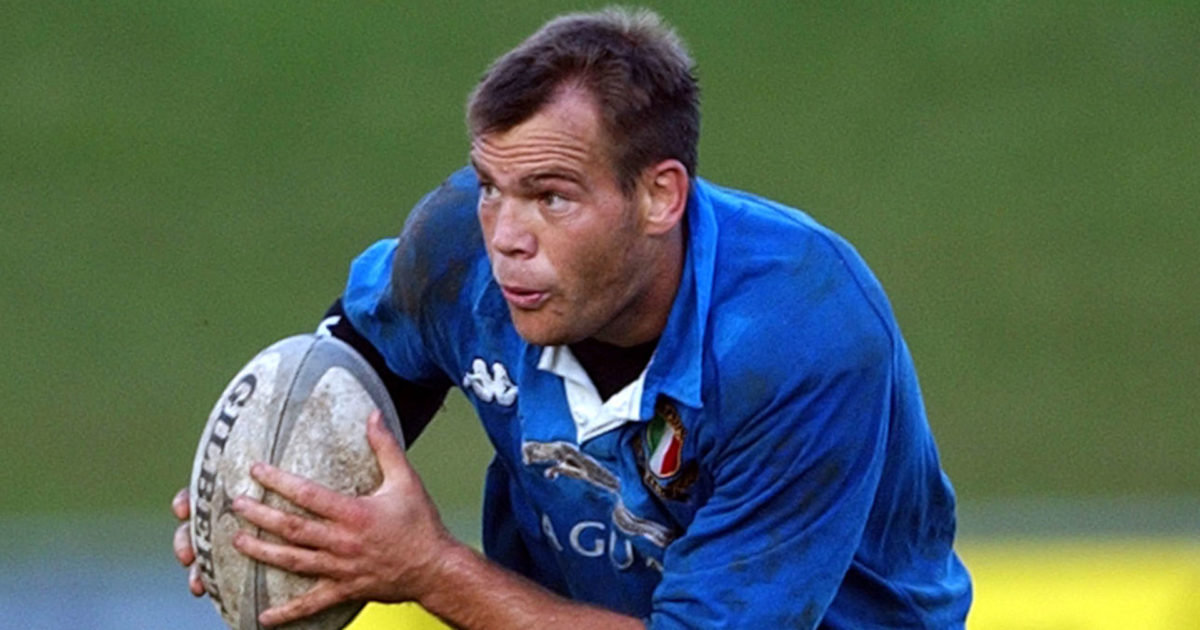The 80-metre kicking Italian 'boerseun' that rugby forgot

Gert Peens is not exactly a household name in South African rugby folklore. However, he has had a colourful career that included a World Cup appearance for Italy and more than 400 first-class games for 12 different Italian clubs – to go with a good number of appearances with a couple of South African provinces – writes Jan de Koning.
He is probably best remembered for any number of the many monster kicks he landed in a career that spanned more than two decades – including a drop-goal of well over 50 metres at Lansdowne Road in Dublin and one of nearly 60 metres at the age of 42.
There is also an 80-metre kick (that’s the distance his teammates claim) he landed for Wits Technicon in a club match against West Rand. Video evidence exists of several kicks beyond the 50-metre mark. However, we have to rely on the verbal ‘evidence’ of his teammates for the 80-metre effort.
In his five years (23 Tests) for the Azzurri, he managed a 92 percent success rate with the boot. He also played in every backline position except scrumhalf.
Peens arrived at Frascati in Italy in 1993 as a 19-year-old. For eight years he played in South Africa during the Southern Hemisphere winters and then moved to Italy for another season.
In Piacenza he met the woman who became his wife in 2001 and qualified him to be selected for Italy. However, let us start at the beginning of this fascinating journey. Born in Germiston, Peens played his first games for Elsburg Primary on the East Rand and represented Transvaal in the Under-13 Craven Week tournament.
He started playing for played for Elspark Tech in Germiston, but later move to Krugersdorp – where he enrolled at the famous Monument Hoërskool on the West Rand for two years and then joined Helpmekaar Hoërskool, where he completed his schooling.
After school he joined Wits Technicon, where one of his teammates gave him a contact in Italy. That was when he made the first of those annual trips north. He joined Frascati in 1993, then still 19.
Then, during the South African summers he would play in Italy and return to South Africa for rugby in the Southern Hemisphere winters.
This all-year-round rugby routine lasted for about eight years. He studied sport management while playing for Rand Afrikaans University (now Johannesburg University).
This was the early to mid-1990s, the golden era of Transvaal rugby – when the likes of Hennie le Roux, Johan Roux, Pieter Hendriks, James Dalton, Ian MacDonald, Jannie van der Walt and Jaco Louw featured in that RAU outfit.
Obviously opportunities were limited, given the quality of the players in Transvaal in that era.
He was then on loan to the Falcons and made his Currie Cup debut for the East Rand-based outfit. After some impressive wins over Western Province and the Blue Bulls, as well as a draw against Transvaal, they finished fifth in South Africa’s premiers domestic competition.
In 1997 he joined Rugby Roma in Italy, where he was a teammate of Springbok lock Adri Geldenhuys.
The then Rovigo coach, former Springbok coach Nelie Smit, lured Peens to the Eastern Cape, where he signed for Eastern Province for two seasons.
He continued his year-round rugby routine and when he retired at 42 – mainly the result of a law in Italy that prevents players from playing beyond that age – he had played for Frascati, Segni, Rugby Roma, Calvisano, Piacenza, Parma, Rovigo, L’Aquila (102 appearances) and finished at Asti. He had a one-year run as player-coach at Alessandria, two years as player-coach Amatori Alghero and finished as player-coach Lecce.
Peens made his debut for Italy against Wales in Cardiff in 2002, where he kicked a 56-metre penalty.
His second Six Nations game was against Ireland in Dublin, where he slotted a 58-metre drop-goal at a packed Lansdowne Road.
Highlights on the international stage include a 100 percent kicking record on a two-match tour of Argentina, where he was Man of the Match in a (30-29) win over Los Pumas in Cordoba.
His final Test was against Australia in Rome – a narrow 18-25 loss to the Wallabies on 11 November 2006.



















































